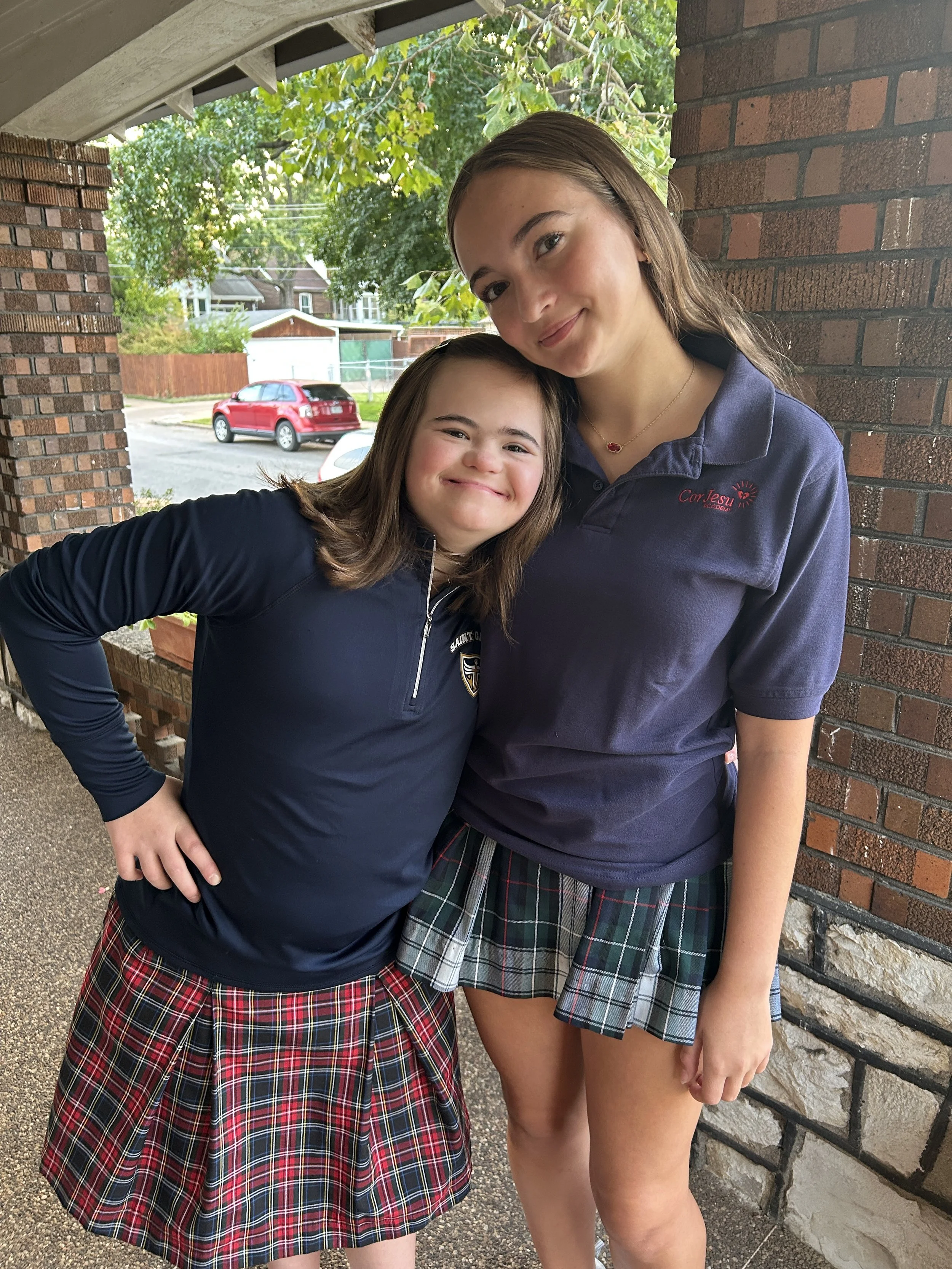
Why Inclusion
Why Inclusion Matters
Inclusion of children with intellectual and developmental disabilities (IDD) in Catholic education is consistent with Catholic social teaching on the dignity of every human life. Catholic tradition upholds that every human life is sacred and worthy of respect as the bedrock of a just society. This is not a passive teaching; it is a call to create communities and social systems that reflect the underlying love and divinity of each person.
In the 1940’s, the Archdiocese of St. Louis pioneered Catholic education for children with disabilities by implementing the nation’s first “special school district” of separate elementary, secondary, and technical schools. While this was a positive step, a decline in Catholic school enrollment and subsequent financial pressure prevented long-term sustainability.
Further, educational research over the course of 40 years began to show higher academic performance, better social-emotional development, and more positive long-term benefits for all students in an academically inclusive environment.
In short? All students benefit from an inclusive education.
One Classroom’s collaborative ecosystem alleviates the pain points of limited human and fiscal resources in Catholic schools, while realizing the value of placing students with special needs alongside their peers at Catholic schools.
“Aiden is just Aiden, one of my classmates. We all have gifts and a purpose in life. I don’t know what my purpose is, and I don’t know what Aiden’s is. All I know is that Aiden has gifts and a purpose in life, and it’s just as important as mine.”
- Student, Incarnate Word Catholic School
By optimizing existing infrastructure at Catholic schools, One Classroom inclusion programs provide:
A Catholic education for students of all abilities with on-site therapies and services;
Support of Catholic school enrollment by enabling families of children with disabilities to send all of their children to the same school;
Easily accessible and personalized training for administrators, educators and pastors to facilitate program integration;
A fresh perspective on long-held beliefs that inclusive education only benefits children with disabilities, that a child’s disability defines his/her identity, and that schools lack the resources to accommodate these children;
An environment that reduces the stigma experienced by individuals with disabilities who are academically, socially, emotionally and physically segregated; and
The promotion of a more just, equitable and inclusive society, increased empathy and acceptance of individual disabilities by breaking down barriers among peers.


